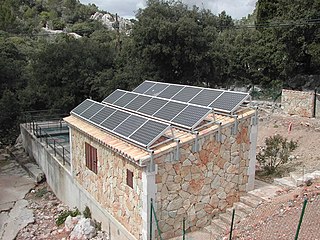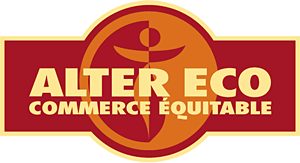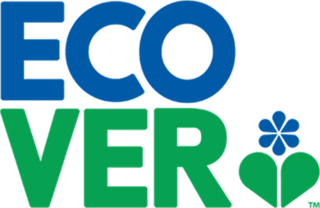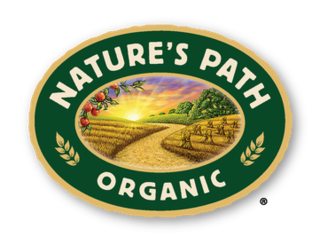Related Research Articles

Fair trade is a term for an arrangement designed to help producers in developing countries achieve sustainable and equitable trade relationships. The fair trade movement combines the payment of higher prices to exporters with improved social and environmental standards. The movement focuses in particular on commodities, or products that are typically exported from developing countries to developed countries but is also used in domestic markets, most notably for handicrafts, coffee, cocoa, wine, sugar, fruit, flowers and gold.

Flip-flops are a type of light sandal-like shoe, typically worn as a form of casual footwear. They consist of a flat sole held loosely on the foot by a Y-shaped strap known as a toe thong that passes between the first and second toes and around both sides of the foot. This style of footwear has been worn by the people of many cultures throughout the world, originating as early as the ancient Egyptians in 1,500 B.C. In the United States the modern flip-flop may have had its design taken from the traditional Japanese zōri, after World War II as soldiers brought them back from Japan.
Ethical consumerism is a type of consumer activism based on the concept of dollar voting. People practice it by buying ethically made products that support small-scale manufacturers or local artisans and protect animals and the environment, while boycotting products that exploit children as workers, are tested on animals, or damage the environment.

Environment friendly processes, or environmental-friendly processes, are sustainability and marketing terms referring to goods and services, laws, guidelines and policies that claim reduced, minimal, or no harm upon ecosystems or the environment.
A sustainable business, or a green business, is an enterprise that has a minimal negative impact or potentially a positive effect on the global or local environment, community, society, or economy—a business that strives to meet the triple bottom line. They cluster under different groupings and the whole is sometimes referred to as "green capitalism." Often, sustainable businesses have progressive environmental and human rights policies. In general, a business is described as green if it matches the following four criteria:
- It incorporates principles of sustainability into each of its business decisions.
- It supplies environmentally friendly products or services that replace demand for nongreen products and/or services.
- It is greener than traditional competition.
- It has made an enduring commitment to environmental principles in its business operations.

Veja is a French footwear and accessories brand founded in 2004. Veja's products are made with organic cotton and recycled plastic bottles.

Alter Eco refers to two alternative trading organizations, founded in 1998 by Tristan Lecomte in France, and followed by Mathieu Senard and Eduoard Rollet in the United States, and Ilse Keijzer in Australia.

Ecover is a Belgian company that manufactures ecologically sound cleaning products, owned by S. C. Johnson & Son since 2017.
Sustainable seafood is seafood that is caught or farmed in ways that consider the long-term vitality of harvested species and the well-being of the oceans, as well as the livelihoods of fisheries-dependent communities. It was first promoted through the sustainable seafood movement which began in the 1990s. This operation highlights overfishing and environmentally destructive fishing methods. Through a number of initiatives, the movement has increased awareness and raised concerns over the way our seafood is obtained.

Havaianas is a Brazilian brand of flip-flop sandals created and patented in 1962. It is currently owned by Brazilian manufacturing company Alpargatas S.A. Inspired by Japanese zori sandals, Robert Fraser became the first to mass-produce flip-flops out of rubber. The name Havaianas is derived from the feminine form of the Portuguese word for "Hawaiians", and the pattern on the soles of the sandals is designed to resemble the straw soles of zori. Originally, all Havaianas featured white insoles with colored outsoles and straps. Because of their simplicity and low price, the sandals became rapidly popular with Brazil's lowest social classes. However, now their popularity is generalized and the brand controls 80% of the Brazilian rubber slippers market: in fact, of every three Brazilians, two on average consume a pair of "Havaianas" per year.

Nike, Inc. is an American athletic footwear and apparel corporation headquartered near Beaverton, Oregon, United States. It is the world's largest supplier of athletic shoes and apparel and a major manufacturer of sports equipment, with revenue in excess of US$46 billion in its fiscal year 2022.
Animal-free agriculture, also known as veganic agriculture, stockfree farming or veganic farming, consists of farming methods that do not use animals or animal products.

Nature's Path Foods, commonly known as Nature's Path, is a privately held, family-owned producer of certified organic foods. Originally known for its breakfast cereals, it now has a portfolio of more than 150 products. Founded in 1985 by Arran and Ratana Stephens, Nature's Path employs approximately 500 people, with manufacturing facilities in Canada and the United States and sales in more than 40 countries. All of its products are vegetarian, certified organic, and Non-GMO Project Verified. Nature's Path is a triple bottom line social enterprise, and has been recognized for incorporating the notion of sustainability into its business practices through its support of various charitable and eco-friendly initiatives. The company is regularly named one of Canada's best employers.

Steaz, a brand of organic green tea-based beverages, was established in 2002 by co-founders Steven Kessler and Eric Schnell. The Steaz brand, headquartered in Doylestown, Pennsylvania, is currently owned by the privately held Healthy Beverage Company.

Allbirds, Inc. is a New Zealand and American company that sells footwear and apparel. The company claims to keep its products as eco-friendly as possible and is a certified B Corporation. Allbirds uses a direct-to-consumer model in conjunction with distribution via select additional stores, selling its products through its website and retail stores in addition to select Nordstrom and Dick's Sporting Goods locations.
The Fair Rubber Association, Fair Rubber e.V., is a non-governmental organization registered under German law. Its purpose is to apply the principles of fair trade to products made of natural rubber, to help improve the working and living conditions in particular of the primary producers of natural rubber, i.e. the tappers and small farmers involved in the procurement of raw latex milk.

Summer Rayne Oakes is an American fashion model, environmental activist, author, and entrepreneur, known as the world's first "eco-model". Oakes grew up in rural Pennsylvania, where her concern for the environment began early. She studied ecology in college, where she noticed that scientific papers on the environment received much less attention than popular media. She became a model in New York City, and insisted on only modeling clothing made from organic or recycled materials. These principles cost her work, but gained her notice and the title of world's first "eco-model".

Bearpaw Holdings LLC is an American brand of footwear, apparel, and accessories.

Bananatex is a natural cellulosic biodegradable "technical" canvas fabric made of Abacá banana plant fibres. The plants are grown in the Philippines as part of a sustainable forestry project in Catanduanes. Bananatex was developed and is distributed by the Swiss canvas goods company QWSTION and is used in the company's own products as well as in other companies' manufactured goods. Bananatex was developed to have better wear characteristics than cotton while being more sustainable. It is less durable than synthetics like Cordura, and can biodegrade. Bananatex is sold in a range of colours and is available with or without a natural beeswax waterproof coating.
References
- 1 2 3 "Green Shopping, Eco Friendly Products & Sustainable Living Tips - eBay Green Team". Community.worldofgood.com. Archived from the original on 2012-06-07. Retrieved 2012-09-01.
- 1 2 3 "Autonomie High-Top Shoes Eco Product Review". Life Goggles. 1999-02-22. Retrieved 2012-09-01.
- ↑ "Green America: Sweatshops: Sneakers, Leaders and Laggards (Summer 2008)". Coopamerica.org. Archived from the original on 2009-04-01. Retrieved 2012-09-01.
- ↑ "Talon Fair Trade". Talon Fair Trade. Retrieved 2012-09-01.
- ↑ "Trees for the Future > Restoring Degraded Lands to Sustainable Productivity". Treesftf.org. Archived from the original on 2010-06-13. Retrieved 2012-09-01.
- ↑ "lifegoggles.com". lifegoggles.com. Retrieved 2012-09-01.
- ↑ "leafygreen.info". leafygreen.info. Retrieved 2012-09-01.
- ↑ Ed (2008-03-05). "Autonomie Project Ethletic Sneakers". Leafygreen.info. Archived from the original on 2012-02-17. Retrieved 2012-09-01.